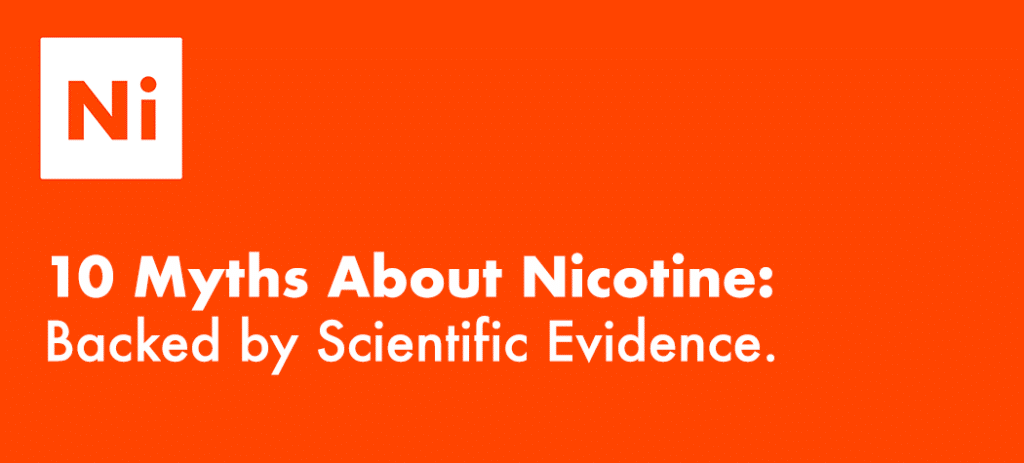Myths and Facts
10 Myths & Misconceptions About Nicotine
Nicotine is often portrayed in a negative light, surrounded by myths and misconceptions that can lead to misunderstanding. This article aims to debunk 10 common myths about nicotine, backed by scientific evidence and expert opinions. By understanding the truth about nicotine, you can make informed decisions about its use and impact on health.
Myth #1: Nicotine Causes Cancer
One of the most widespread myths about nicotine is that it causes cancer. In reality, nicotine itself is not carcinogenic. It’s the other chemicals found in tobacco smoke, such as tar and carbon monoxide, that are primarily responsible for causing cancer. While nicotine is addictive and has other health effects, it does not directly cause cancer.
Myth #2: Nicotine is Harmful to Everyone
Another misconception is that nicotine is universally harmful to all individuals. While nicotine can have negative effects, especially for certain groups like pregnant women and adolescents, it may not pose significant health risks for adult users who do not smoke or use tobacco products.
Myth #3: Nicotine Replacement Therapies Are as Harmful as Smoking
Some people believe that nicotine replacement therapies (NRTs) are as harmful as smoking cigarettes. However, NRTs like patches, gum, and lozenges are designed to deliver controlled doses of nicotine without the harmful chemicals found in tobacco smoke. They are considered safe and effective aids for smoking cessation.
Myth #4: Nicotine is More Addictive Than Heroin
There’s a common misconception that nicotine is more addictive than heroin. While nicotine is highly addictive, it does not produce the same intense physical dependence and withdrawal symptoms as heroin. Addiction potential can vary depending on the substance and individual factors.
Myth #5: Nicotine Causes Brain Damage
Another myth is that nicotine causes permanent brain damage. Research suggests that while nicotine can affect brain function, especially in developing brains, the evidence for long-term brain damage from nicotine alone is inconclusive. The greater concern lies in the potential impact of nicotine on brain development in young users.
Myth #6: Nicotine Replacement Therapies Are Ineffective
There’s a misconception that nicotine replacement therapies (NRTs) are ineffective for quitting smoking. In reality, NRTs have been shown to significantly increase the chances of successful smoking cessation when used as part of a comprehensive quit-smoking program. They help reduce withdrawal symptoms and cravings, making it easier for individuals to quit smoking.
Myth #7: Nicotine is Only Found in Tobacco
Many people believe that nicotine is only found in tobacco. While tobacco is the primary source of nicotine, the substance can also be found in other plants, including tomatoes, potatoes, and eggplants. However, the nicotine content in these plants is significantly lower than in tobacco.
Myth #8: Nicotine Vaping Is Just as Harmful as Smoking
There’s a misconception that vaping nicotine is as harmful as smoking traditional cigarettes. While vaping is not risk-free and its long-term health effects are still being studied, research suggests that vaping is generally considered less harmful than smoking. The key difference lies in the absence of combustion and the reduced exposure to toxic chemicals found in tobacco smoke.
Myth #9: Nicotine Causes Heart Disease
Another common myth is that nicotine causes heart disease. While nicotine can temporarily increase heart rate and blood pressure, it is the other chemicals in tobacco smoke that are primarily responsible for cardiovascular damage. Nicotine alone does not directly cause heart disease, but its use in tobacco products is associated with increased risks.
Myth #10: Nicotine Use is Morally Wrong
Finally, there’s a misconception that nicotine use is morally wrong or indicative of poor character. Nicotine use, like any substance, should be approached with caution and awareness of potential health risks. However, it is essential to recognise that nicotine addiction is a complex issue influenced by biological, psychological, and social factors.
Conclusion
By debunking these common myths and misconceptions about nicotine, we aim to provide clarity and promote informed decision-making. Understanding the truth about nicotine is crucial for public health initiatives, smoking cessation efforts, and policy-making. If you have any questions or would like to learn more, feel free to explore our blog or reach out to our team.
For more informative articles, visit our blog or contact us here.
Disclaimer: This article is for informational purposes only and does not constitute medical advice. Consult a healthcare professional for personalised recommendations.

